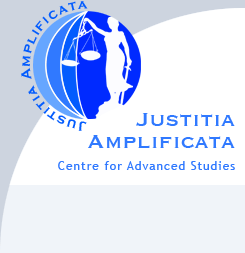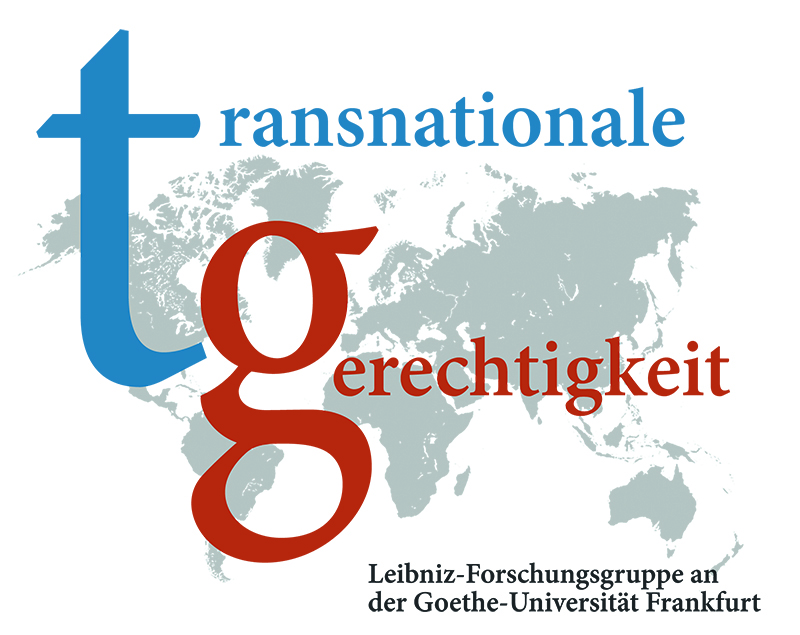Justice and Legitimacy in Transnational Perspective
The researchers engaged in this field are examining the relationship between justice, democracy, human rights and legitimacy – normative terms which claim validity for transnational relations. In so doing, they endeavour to clarify whether the claims which are implicit in the way these terms are used might possibly be in conflict with each other and how this should be handled from a conceptual perspective. The contemporary debate on transnational justice deals with the following questions on a primarily conceptual or theoretical level: What type of transnational social and political relations can be judged at all according to justice standards? What procedural and substantial principles of justice apply for what type of transnational relations? The debate on the future of democracy and democratic (national) citizenship addresses the problem of how the borders of the demos should be defined under these conditions and what the institutional and cultural principles of democratic self-governance are.
In addition, the researchers at the chairs involved are investigating concrete demands for justice in specific fields of transnational politics – for example in the area of development policy, European policy, trade policy, climate and environmental policy, human rights policy, gender as well as post-colonial policy, and security and defence policy.
Theoretical Framework | Methods: Both in research with a stronger conceptual focus as well as more practice-oriented research, the relationship between political theory and practice is the object of methodical confrontation. This revolves around the question of whether political theory and philosophy as well as social sciences must be related to one another in order to explore adequately various types of transnational relations and policy fields. It is above all for this reason that the tradition of critical social theory continues to be of fundamental relevance for this research focus.
Participating Professors
Rainer Forst, Darrel Moellendorf, Sandra Seubert
| Projects (Selection) | |
| |
All Rights Reserved? Barriers towards European CITIZENship Principal Investigator: Prof. Dr. Sandra Seubert |
|
Exzellenzcluster Normative Ordnungen Principal Investigators: Prof. Dr. Rainer Forst; Prof. Klaus Günther Research Areas: Power, Rule and Violence in Orders of JustificationPrincipal Investigator: Prof. Dr. Rainer Forst Sustainable Development, Global Governance, and Justice |
|
 |
Center for Advanced Studies Justitia Amplificata ("Rethinking Justice - Applied and Global") Principal Investigator: Prof. Dr. Rainer Forst; Prof. Dr. Stefan Gosepath (FU Berlin) |
 |
Leibniz Research Group Transnational Justice Principal Investigator: Prof. Dr. Rainer Forst |
 |
Transformations of Privacy: Europeanization of e-privacy Principal Investigator: Prof. Dr. Sandra Seubert |
- Aktuelles und Presse
- Pressemitteilungen
- Öffentliche Veranstaltungen
- Uni-Publikationen
- Aktuelles Jahrbuch
- UniReport
- Forschung Frankfurt
- Aktuelle Stellenangebote
- Frankfurter Kinder-Uni
- Internationales
- Outgoings
- Erasmus / LLP
- Goethe Welcome Centre (GWC)
- Refugees / Geflüchtete
- Erasmus +
- Sprachenzentrum oder Fremdsprachen
- Goethe Research Academy for Early Career Researchers
- Forschung
- Research Support
- Forschungsprojekte, Kooperationen, Infrastruktur
- Profilbereich Molecular & Translational Medicine
- Profilbereich Structure & Dynamics of Life
- Profilbereich Space, Time & Matter
- Profilbereich Sustainability & Biodiversity
- Profilbereich Orders & Transformations
- Profilbereich Universality & Diversity




